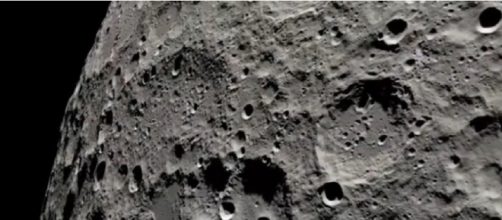The United States, Russia and Europe have been involved in space travel and activities associated with the moon for a long time. In fact, the first man who landed on the moon in 1969 was an American. China is a comparatively new entrant in the field, but it has made rapid strides. In February 2020, China launched the Chang’e-4 mission to gather data from the far side of the moon. It was a revolutionary concept because no other country had thought of carrying out such an exercise. Scientists in China have now created an “artificial moon” and have equipped it with it lunar-like gravity.
That will mean an environment comparable to that on the moon and it will help astronauts prepare for future missions.
Inspiration for the low-gravity simulated environment came from experiments with magnets to levitate a frog. Those who have created it say the design of the simulator is such that it can “make gravity disappear.” It is possible to simulate low gravity on Earth, but that is for short duration. The developers describe the new lunar simulator in brief. It sits in a vacuum chamber and has the capacity to simulate low or zero gravity for long periods as necessary.
China built an artificial lunar landscape to give a feeling of reality
There is an artificial lunar landscape inside the small sized room.
It consists of rocks and dust that are similar to those found on the surface of the moon. Gravity on the moon is less powerful as that on Earth. Therefore, the team created a strong magnetic field inside the chamber to simulate the “levitation effects” of a low gravitational force. The credit for using magnetic fields for levitation goes to Russian physicist Andre Geim. He won an Ig Nobel prize in 2000 for making a frog float. He subsequently won a Nobel Prize in Physics in 2010 for work he did in the creation of graphene. In December 2020, China brought moon rocks back to Earth for the first time. They would probably analyze them to understand more about the moon and the minerals available there.
Astronauts from China plan moon missions by 2030
China and Russia have plans to set up a lunar base on the moon by the end of this decade. It would be a joint project and China would be sending astronauts to the moon by 2030. The “artificial moon” will be invaluable to the scientists. It will allow them to get acclimatized to work in artificially generated low gravity.
China has not yet officially launched the artificial moon
An official of the China University of Mining and Technology explains the facility can make gravity “disappear” for as long as required. Its landscape is a combination of rocks and dust, similar to what exists on the moon. It has a strong magnetic field that has the power to levitate small objects like a chestnut and a live frog.
The facility has certainly many positives. It will recreate a lunar environment on Earth that will be an advantage to scientists. They can check in advance the behavior of test equipment when it has to operate on the moon. That can avoid costly mistakes.


